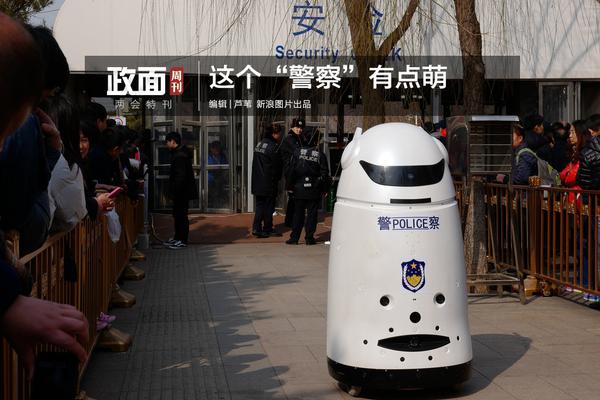
Service portal The total service portal functions should include "registration and login, operation desk, my order, my warehouse, my products, my accounts, supplier information, customer center, signing agreement and message center" and so on.
The basic modules of an SCM supply chain system include raw material management, production management, coding management, warehouse management, distribution management, anti-counterfeiting management, anti-smuffuling management, permission management and other functional modules.Raw material management: including raw material procurement, inspection, raw material traceability, warehousing and suppliers and other modules.
The ERP system mainly includes the following functional modules: supply chain management modules: including procurement, inventory management, inventory control, logistics management, etc.
1. There are customer management subsystem, supplier management subsystem, procurement management subsystem, warehouse management subsystem, etc. Supply chain management system refers to the integration of key business processes and corporate relationships from material suppliers to users in the entire supply chain in order to provide customers with goods, services or information.
2. Supply chain management system is a structured framework and method used to plan, coordinate, execute and monitor supply chain activities within an organization.This system aims to ensure that the supply chain can operate efficiently and meet customer needs, while reducing costs, improving quality and enhancing competitiveness.
3. User-friendly interface: The digital supply chain management system needs to design a user-friendly interface so that users can easily access and use the system. This includes multilingual support, intuitive navigation and easy-to-use reporting functions.

1. Supply chain management system is a structured framework and method for planning, coordinating, executing and monitoring supply chain activities within an organization. This system aims to ensure that the supply chain can operate efficiently and meet customer needs, while reducing costs, improving quality and enhancing competitiveness.
2. Supply chain is the whole process of a product from the purchase of raw materials to the successful sale of products. It can be understood as a chain related to the product. The links of purchasing materials, processing materials and selling products are closely connected by the chain, and each link has a huge relationship with the quality of the product. Contact.
3. Supply chain logistics management refers to a logistics management system centered on the core products or core business of the supply chain.
4. The content and significance of the concept of supply chain management. The ideas and methods of supply chain management have been applied in many enterprises and have made great achievements.
5. Briefly analyze what is a supply chain management system and its importance. Supply chain management system refers to the integration of key business processes and relationships of enterprises in the entire chain from the original material supplier to the end user to provide goods, services or information to end customers.
1. Supply chain management platform is a software system that integrates various supply chain management functions, aiming to coordinate, monitor and optimize the entire supply Chain process.The supply chain management platform usually integrates procurement, production, logistics, inventory management, order processing and other links to improve overall efficiency and transparency.
2. Supply chain management system refers to the integration of key business processes and relationships of enterprises in the entire chain from the original material supplier to the end user to provide goods, services or information to end customers.
3. Supply chain management system is a structured framework and method for planning, coordinating, executing and monitoring supply chain activities within an organization. This system aims to ensure that the supply chain can operate efficiently and meet customer needs, while reducing costs, improving quality and enhancing competitiveness.
4. Supply chain management is mainly to optimize the operation of the supply chain, so that the supply chain can be the whole process from procurement to satisfying the end customer at the lowest cost.
5. Supply Chain Management (SCM) is an all-round enterprise management application software that can help enterprises realize the comprehensive automation of the entire business operation.
Binance login-APP, download it now, new users will receive a novice gift pack.
Service portal The total service portal functions should include "registration and login, operation desk, my order, my warehouse, my products, my accounts, supplier information, customer center, signing agreement and message center" and so on.
The basic modules of an SCM supply chain system include raw material management, production management, coding management, warehouse management, distribution management, anti-counterfeiting management, anti-smuffuling management, permission management and other functional modules.Raw material management: including raw material procurement, inspection, raw material traceability, warehousing and suppliers and other modules.
The ERP system mainly includes the following functional modules: supply chain management modules: including procurement, inventory management, inventory control, logistics management, etc.
1. There are customer management subsystem, supplier management subsystem, procurement management subsystem, warehouse management subsystem, etc. Supply chain management system refers to the integration of key business processes and corporate relationships from material suppliers to users in the entire supply chain in order to provide customers with goods, services or information.
2. Supply chain management system is a structured framework and method used to plan, coordinate, execute and monitor supply chain activities within an organization.This system aims to ensure that the supply chain can operate efficiently and meet customer needs, while reducing costs, improving quality and enhancing competitiveness.
3. User-friendly interface: The digital supply chain management system needs to design a user-friendly interface so that users can easily access and use the system. This includes multilingual support, intuitive navigation and easy-to-use reporting functions.

1. Supply chain management system is a structured framework and method for planning, coordinating, executing and monitoring supply chain activities within an organization. This system aims to ensure that the supply chain can operate efficiently and meet customer needs, while reducing costs, improving quality and enhancing competitiveness.
2. Supply chain is the whole process of a product from the purchase of raw materials to the successful sale of products. It can be understood as a chain related to the product. The links of purchasing materials, processing materials and selling products are closely connected by the chain, and each link has a huge relationship with the quality of the product. Contact.
3. Supply chain logistics management refers to a logistics management system centered on the core products or core business of the supply chain.
4. The content and significance of the concept of supply chain management. The ideas and methods of supply chain management have been applied in many enterprises and have made great achievements.
5. Briefly analyze what is a supply chain management system and its importance. Supply chain management system refers to the integration of key business processes and relationships of enterprises in the entire chain from the original material supplier to the end user to provide goods, services or information to end customers.
1. Supply chain management platform is a software system that integrates various supply chain management functions, aiming to coordinate, monitor and optimize the entire supply Chain process.The supply chain management platform usually integrates procurement, production, logistics, inventory management, order processing and other links to improve overall efficiency and transparency.
2. Supply chain management system refers to the integration of key business processes and relationships of enterprises in the entire chain from the original material supplier to the end user to provide goods, services or information to end customers.
3. Supply chain management system is a structured framework and method for planning, coordinating, executing and monitoring supply chain activities within an organization. This system aims to ensure that the supply chain can operate efficiently and meet customer needs, while reducing costs, improving quality and enhancing competitiveness.
4. Supply chain management is mainly to optimize the operation of the supply chain, so that the supply chain can be the whole process from procurement to satisfying the end customer at the lowest cost.
5. Supply Chain Management (SCM) is an all-round enterprise management application software that can help enterprises realize the comprehensive automation of the entire business operation.
 Binance login
Binance login
624.59MB
Check Binance login App
Binance login App
353.79MB
Check OKX review
OKX review
945.81MB
Check Binance download
Binance download
419.33MB
Check OKX app
OKX app
598.98MB
Check OKX review
OKX review
529.13MB
Check Binance login
Binance login
565.74MB
Check Binance download
Binance download
619.41MB
Check OKX Wallet apk download latest version
OKX Wallet apk download latest version
692.45MB
Check OKX Wallet app
OKX Wallet app
653.92MB
Check Binance download
Binance download
446.59MB
Check OKX Wallet APK
OKX Wallet APK
685.34MB
Check Binance login
Binance login
812.82MB
Check Binance APK
Binance APK
498.46MB
Check Binance download Android
Binance download Android
788.84MB
Check okx.com login
okx.com login
318.26MB
Check Binance app download Play Store
Binance app download Play Store
229.81MB
Check OKX Wallet to exchange
OKX Wallet to exchange
113.57MB
Check Binance APK
Binance APK
421.94MB
Check OKX Wallet APK
OKX Wallet APK
732.67MB
Check Binance app
Binance app
118.44MB
Check okx.com login
okx.com login
484.92MB
Check Binance login
Binance login
991.88MB
Check OKX review
OKX review
483.34MB
Check OKX Wallet apk download
OKX Wallet apk download
394.33MB
Check OKX Wallet app
OKX Wallet app
444.82MB
Check Binance US
Binance US
314.52MB
Check Binance download
Binance download
536.65MB
Check Binance download
Binance download
583.12MB
Check Binance app
Binance app
179.15MB
Check Binance login
Binance login
552.43MB
Check OKX Wallet APK
OKX Wallet APK
425.54MB
Check Binance market
Binance market
634.52MB
Check OKX Wallet apk download latest version
OKX Wallet apk download latest version
683.52MB
Check Binance login
Binance login
326.62MB
Check Binance download APK
Binance download APK
963.99MB
Check
Scan to install
Binance login to discover more
Netizen comments More
709 龙章凤姿网
2025-02-02 23:47 recommend
1485 朝穿暮塞网
2025-02-02 23:33 recommend
880 透骨酸心网
2025-02-02 23:16 recommend
2384 一心无二网
2025-02-02 23:01 recommend
2067 避溺山隅网
2025-02-02 22:41 recommend